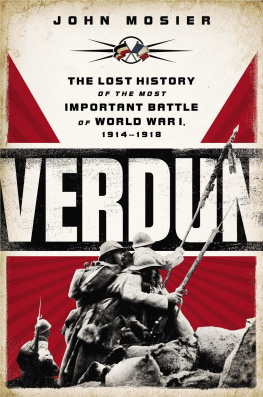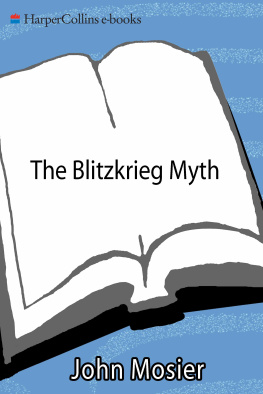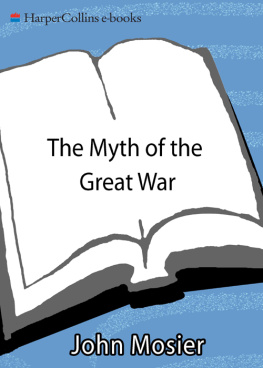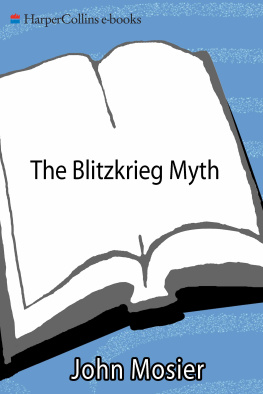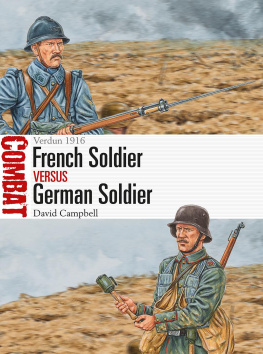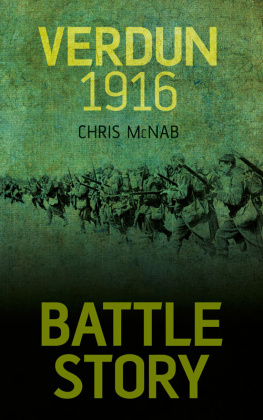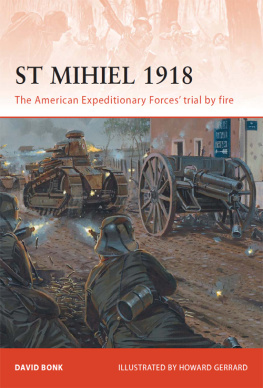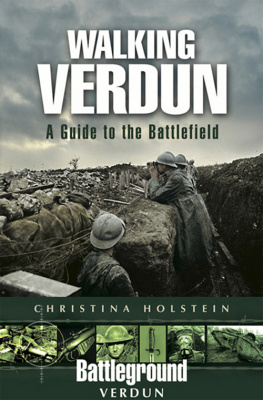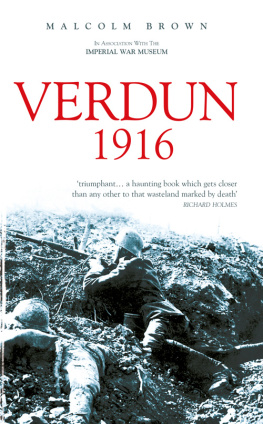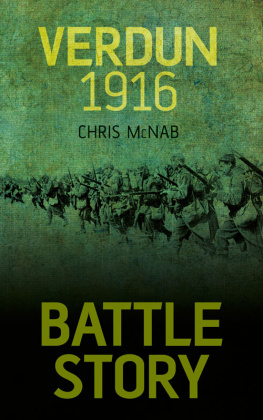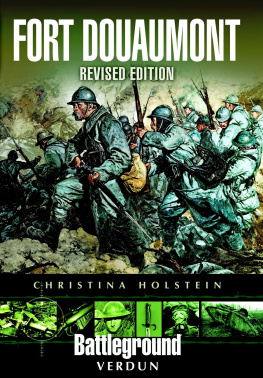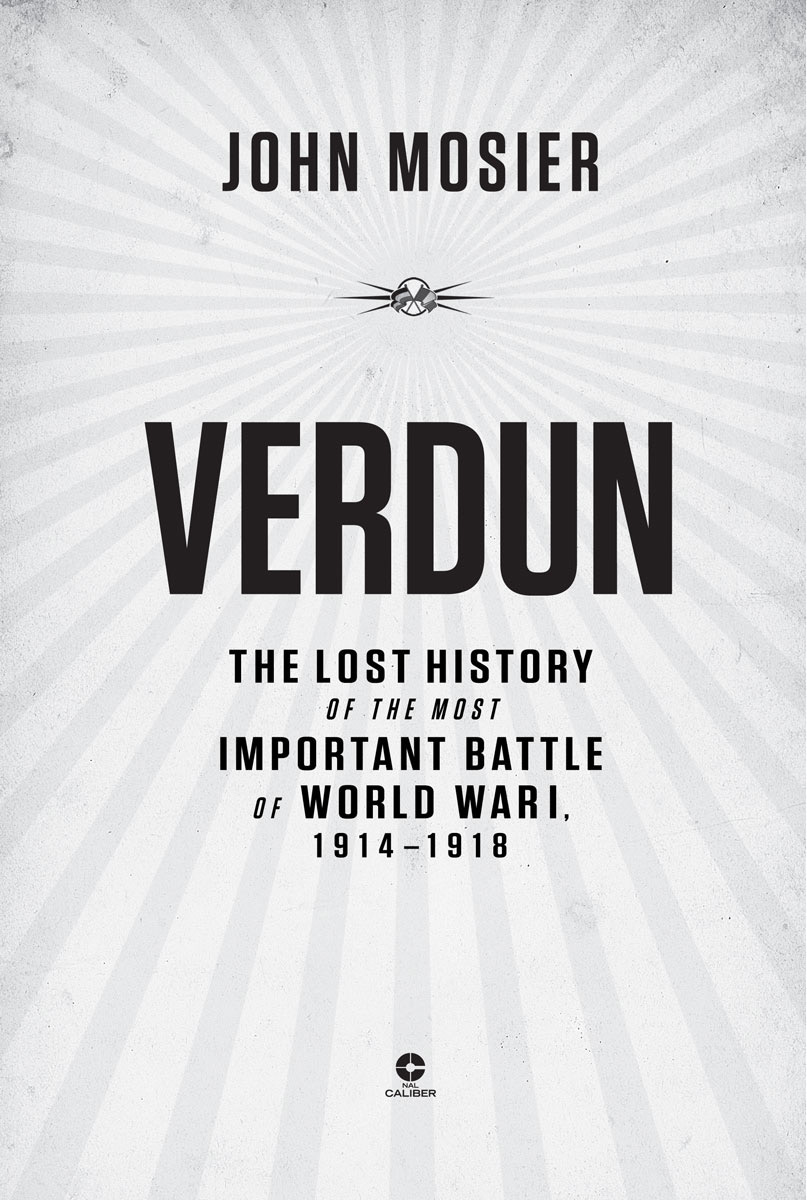BOOKS BY JOHN MOSIER
Institutional Research
Men and Women Together
The Artist Under Socialism
The Myth of the Great War:
A New Military History of World War I
The Blitzkrieg Myth: How Hitler and the Allies
Misread the Strategic Realities of World War II
Cross of Iron: The Rise and Fall of the
German War Machine, 19181945
Grant: A Biography
Deathride: Hitler Versus Stalin
The Eastern Front, 19411945
NAL Caliber
Published by the Penguin Group
Penguin Group (USA) LLC, 375 Hudson Street,
New York, New York 10014
USA | Canada | UK | Ireland | Australia | New Zealand | India | South Africa | China
penguin.com
A Penguin Random House Company
First published by NAL Caliber, an imprint of New American Library,
a division of Penguin Group (USA) LLC
First Printing, October 2013
Copyright John Mosier, 2013
Penguin supports copyright. Copyright fuels creativity, encourages diverse voices, promotes free speech, and creates a vibrant culture. Thank you for buying an authorized edition of this book and for complying with copyright laws by not reproducing, scanning, or distributing any part of it in any form without permission. You are supporting writers and allowing Penguin to continue to publish books for every reader.
NAL CALIBER and the C logo are trademarks of Penguin Group (USA) LLC.
eBook ISBN: 978-1-101-62138-7
LIBRARY OF CONGRESS CATALOGING-IN-PUBLICATION DATA:
Mosier, John, 1944
Verdun: the lost history of the most important battle of
World War I, 19141918/John Mosier.
p. cm.
Includes bibliographical references and index.
ISBN 978-0-451-41462-5
1. Verdun, Battle of, Verdun, France, 1916. 2. Verdun (France)History, Military20th century. I. Title.
D545.V3M68 2013
940.4'272dc23 2013016460
Set in Sabon
Designed by Spring Hoteling
PUBLISHERS NOTE
While the author has made every effort to provide accurate telephone numbers and Internet addresses at the time of publication, neither the publisher nor the author assumes any responsibility for errors, or for changes that occur after publication. Further, publisher does not have any
History, it has been said, does not repeat itself. The historians repeat one another.
Sir Max Beerbohm
MAPS
Battles Known and Unknown
If I were to be tied down to one word for my impression of this war, I should say this war is Queer. It is not like anything in a really waking world, but like something in a dream.
H. G. Wells
Verdun is one of the great battles of the modern era. It is also one of the most complex, and probably the most misunderstood part of a war only imperfectly grasped, even today.
To begin with, it is a serious mistake to think that there was only one battle for Verdun, that battle being the 1916 struggle described so eloquently and misleadingly by Alistair Horne in his classic study, The Price of Glory.
The original Michelin guides spoke, quite correctly, of multiple battles, and recent French accounts have done the same. A. J. P. Taylor once quipped that the difficulty about the Second World War was trying to decide when it began, and when it comes to Verdun we have an analogous problem. The first battles took place in August of 1914. The German stranglehold was not removed until late September 1918. The difficulty arises when trying to compute exactly how many battles there were.
Although for readers who grew up believing that Alistair Hornes account was the definitive tale, the notion of multiple Verduns is surprising, perhaps incredible, the idea of several battles for the same piece of ground, and with the same name, is hardly unique. There were two battles of the Bull Run in the Civil War. The Italians and the Austrians fought no fewer than twelve battles of the Isonzo between 1915 and 1917. Although the American reader would never know it, the 1916 Battle of the Somme was not the first battle of the Great War that was fought there. It was the second battle, and it was the first one that stimulated Jean Bernier to his memorable description.
Joffre, comfortably installed, snored: I gnaw at them, and threw or let throw on the barbed wire and the German machine guns the purest French blood.
There followed the inexplicable offensives of the first winter, the first battle of the Somme in December 1914, of which one never breathes a word, during which, from Mametz and Carnoy to la Boisselle, the regiments rushed every day the enemy lines, without a cannon-shot fired.
The admission that this battle was unknown even in France makes us aware of the realas opposed to the mythic or propagandisticwar that was fought between the French and the Germans.
The presence of rotting logs deep in the forest primeval testifies that they do indeed crash to the earth even if no ones around to hear them. The fact that a battle is unknown, was passed over in silence, does not by any means justify the notion that it was not fought. Or, more precisely, that in some way it was an insignificant struggle, a mere skirmish. That few people outside of France have heard of the first Battle of the Somme, that the battles of the Isonzo usually run together in the readers mind, does not mean they didnt happen, or that they are devoid of importance.
Indeed, as we shall see, the Allies had most excellent reason for glossing over these battles. In every case they failed to come anywhere near achieving their stated objectives. The failure of subsequent generations of historians to correct the record is less excusable, but understandable. The nearly impenetrable secrecy with which the French army cloaked all their operations, the obscurity of the places named (and of French geography in general), the genuine geographical ignorance of foreigners for whom France was as alien as Manchuria or Paraguay, all converged to create a perfect storm of delusional complacency.
THREE SIMPLE ERRORS
But before enumerating these unknown or misplaced battles for Verdun, there are three errors, areas of confusion, to be clarified.
The first is a simple error indeed. The battles fought there were not like the battle for Stalingrad or Berlin, or the 1870 siege of Paris or the 1863 siege of Vicksburg. As we shall see in chapter two, the actual city of that name had no strategic value whatsoever. Verdun was simply a convenient shorthand for a series of rather awkward French military terms that shifted over time: the camp retranche de Verdun, the place fortifie Verdun, the region fortifie Verdun.
The French terms are doubly inconvenient, as over the years they shifted from one to another. So for the sake of simplicity, when the word Verdun appears, it almost invariably means the area encompassed by the field of fire from the forts. In the few cases where there might be some confusion as to whether the city or the fortified region is meant, the text makes clear which is which.

